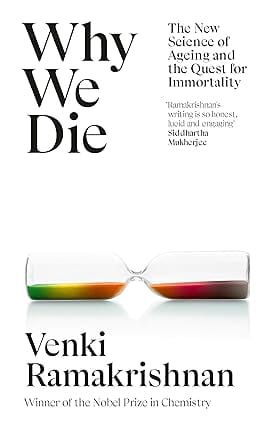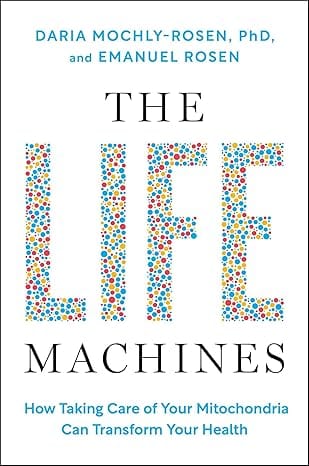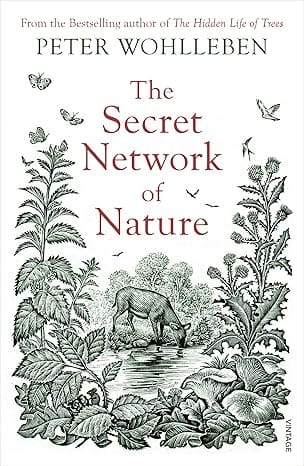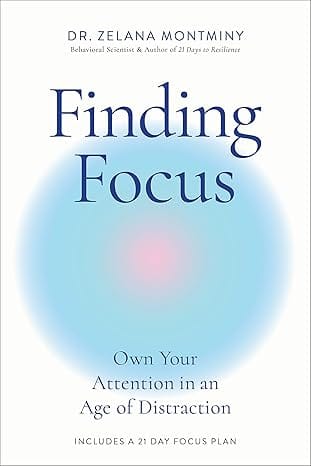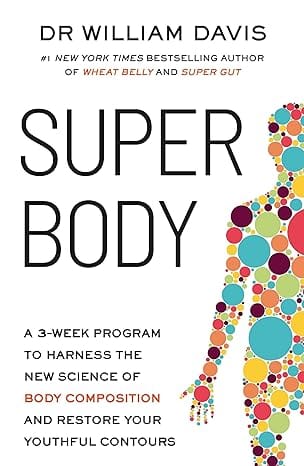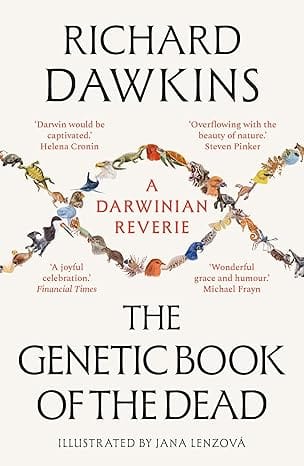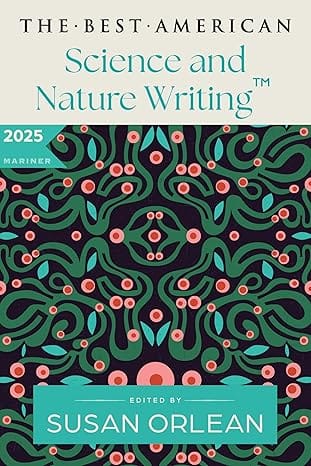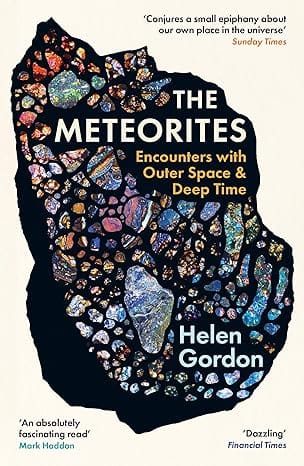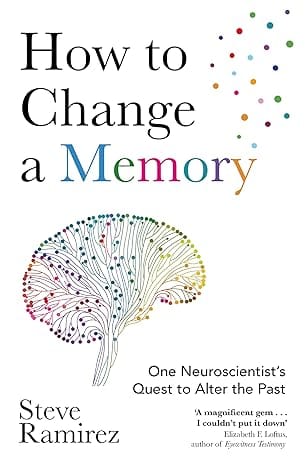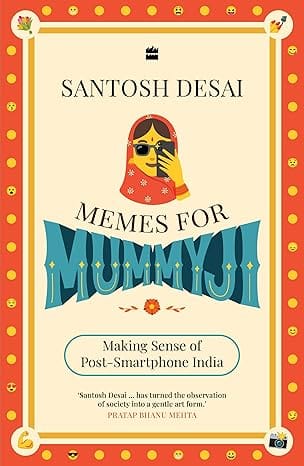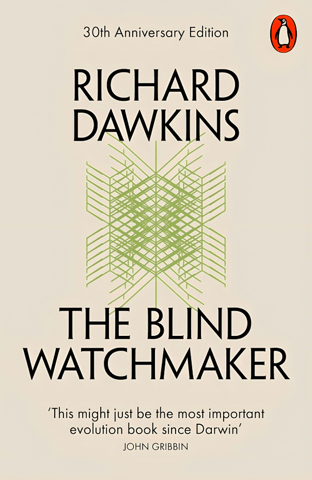WELCOME TO MIDLAND BOOK SHOP!
SHOP FOR
- Non-ficton
- Non-ficton
- Contemporary Fiction
- Contemporary Fiction
- Children
- Children
- Comics & Graphic Novels
- Comics & Graphic Novels
- Non-Fiction
- Non-Fiction
- Fiction
- Fiction
Shop No.20, Aurobindo Palace Market, Hauz Khas, Near Church +91 9818282497 | 011 26867121 110016 New Delhi IN
Midland The Book Shop ™
Shop No.20, Aurobindo Palace Market, Hauz Khas, Near Church +91 9818282497 | 011 26867121 New Delhi, IN
+919871604786 https://www.midlandbookshop.com/s/607fe93d7eafcac1f2c73ea4/69453da445ba84d539b38f9a/black-yellow-simple-bold-youtube-channel-logo-400-x-100-px-1--480x480.png" [email protected]9781529369250 6613e57a7fb1c61d58e0ab41 Why We Die The New Science Of Ageing And The Quest For Immortality https://www.midlandbookshop.com/s/607fe93d7eafcac1f2c73ea4/6613e57b7fb1c61d58e0ab8a/714whgcy85l-_sy425_.jpg 9781529369250
Review
'I have so enjoyed reading this spectacular book - it's full of hope and fun and extraordinary research. It beautifully answers the question at the core of every life. Understanding why we must die helps us understand how we must live. It changed my perspective on the whole living world but most of all myself and the time I have left.' -- Chris van Tulleken, bestselling author of Ultra-Processed People
'Utterly fascinating. Venki Ramakrishnan's ability to take the most challenging subjects and make them clear, enthralling and packed with insights fills me with awe.' -- Bill Bryson
This riveting and revealing book is for all of us who wonder whether ageing and mortality are the next frontiers for human science to cross. Has the first person destined to live of two hundred already been born? Can we really extend our longevity further and further until ... until what? Immortality? Why We Die takes us on a thrilling ride through the science of ageing and death. Meet naked mole rats, lugworms, budding yeast and creepy human charlatans on the way. Venki Ramakrishnan, a Nobel laureate at the very cutting edge of molecular biology has an extraordinary gift for explaining the science behind ageing and death with clarity, wit and enviably entertaining narrative flair. A must read. -- Stephen Fry
"Combines science, politics, memoir and medicine with ease, grace and lucidity. An incredible journey.' -- Siddhartha Mukherjee
'For a book about death, Venki Ramakrishnan's Why We Die is joyfully alive. The story he tells is one of aging and death, but along the way he covers a huge range of biology, evolution, genetics, chemistry, and medicine. This is science writing at its finest: readable, authoritative, and impactful.'
Why We Die is a crisply written, captivating and clear-eyed view of death, and how to defeat it. From research on starvation diets, young blood and cryonics to the longevity of naked mole rats, Nobelist Venki Ramakrishnan introduces us to a cast of extraordinary characters in his quest to fathom how elastic lifespan could prove to be. I believe Why We Die will be his enduring legacy yet, deep down, suspect most of us would still rather achieve immortality through not dying.
The conquest of premature death has been remarkably successful in the past century. Can we go one better and extend life? This erudite, nuanced and insightful book tells a rich tale of discovery about why we age and die, skewers some charlatans along the way and offers just a glimmer of hope about immortality.
"Why We Die brilliantly captures the essentials of our current understanding of the aging process. This is an enjoyable romp through molecular and cell biology - and thought-provoking about ethical issues."
"Enthralling and eminently accessible. ... [Ramakrishnan] probes the essential ethical question that runs through it all. Even if we could live forever, should we?" - Bookseller
"Ramakrishnan is a fine writer, so readers will enjoy his expert if intensely detailed overview of genetics and evolution as it applies to ageing. ... Fascinating. ... An illuminating account of the science of life extension with a more critical eye than most." - Kirkus Reviews
"[Ramakrishnan] has a knack for making biology accessible, and he brings a searching philosophical sensibility when considering the wisdom of seeking to extend life. ... The result is a strikingly pensive exploration of how bodies decline and whether efforts to slow that process are worth the cost." - Publishers Weekly (starred review)
"Why We Die is a candid, wide-ranging, and hype-free survey of the latest in longevity research, from tortoises to telomeres. With his delightful gift for storytelling, Venki Ramakrishnan breathes life into the biology of death. If you want to know what science tells us about lifespan, Why We Die is the only book you need." -- Safi Bahcall, bestselling author of Loonshots: Nurture the Crazy Ideas That Win Wars, Cure Diseases, and Transform Industries
'A wide-ranging look at the changes that take place inside our cells as we age, the prospects for being able to prevent them, and the possible consequences of doing that. An engrossing read.' -- Sarah Gilbert - creator of Oxford AstraZeneca vaccine
'Why We Die brilliantly captures the essentials of current understanding of the aging process. This is an enjoyable romp through molecular and cell biology-and thought-provoking about ethical issues.' -- Linda Partridge, Founding Director of the Max Planck Institute for the Biology of Ageing
'Utterly fascinating. Venki Ramakrishnan's ability to take the most challenging subjects and make them clear, enthralling and packed with insights fills me with awe.' -- Bill Bryson
This riveting and revealing book is for all of us who wonder whether ageing and mortality are the next frontiers for human science to cross. Has the first person destined to live of two hundred already been born? Can we really extend our longevity further and further until ... until what? Immortality? Why We Die takes us on a thrilling ride through the science of ageing and death. Meet naked mole rats, lugworms, budding yeast and creepy human charlatans on the way. Venki Ramakrishnan, a Nobel laureate at the very cutting edge of molecular biology has an extraordinary gift for explaining the science behind ageing and death with clarity, wit and enviably entertaining narrative flair. A must read. -- Stephen Fry
"Combines science, politics, memoir and medicine with ease, grace and lucidity. An incredible journey.' -- Siddhartha Mukherjee
'For a book about death, Venki Ramakrishnan's Why We Die is joyfully alive. The story he tells is one of aging and death, but along the way he covers a huge range of biology, evolution, genetics, chemistry, and medicine. This is science writing at its finest: readable, authoritative, and impactful.'
Why We Die is a crisply written, captivating and clear-eyed view of death, and how to defeat it. From research on starvation diets, young blood and cryonics to the longevity of naked mole rats, Nobelist Venki Ramakrishnan introduces us to a cast of extraordinary characters in his quest to fathom how elastic lifespan could prove to be. I believe Why We Die will be his enduring legacy yet, deep down, suspect most of us would still rather achieve immortality through not dying.
The conquest of premature death has been remarkably successful in the past century. Can we go one better and extend life? This erudite, nuanced and insightful book tells a rich tale of discovery about why we age and die, skewers some charlatans along the way and offers just a glimmer of hope about immortality.
"Why We Die brilliantly captures the essentials of our current understanding of the aging process. This is an enjoyable romp through molecular and cell biology - and thought-provoking about ethical issues."
"Enthralling and eminently accessible. ... [Ramakrishnan] probes the essential ethical question that runs through it all. Even if we could live forever, should we?" - Bookseller
"Ramakrishnan is a fine writer, so readers will enjoy his expert if intensely detailed overview of genetics and evolution as it applies to ageing. ... Fascinating. ... An illuminating account of the science of life extension with a more critical eye than most." - Kirkus Reviews
"[Ramakrishnan] has a knack for making biology accessible, and he brings a searching philosophical sensibility when considering the wisdom of seeking to extend life. ... The result is a strikingly pensive exploration of how bodies decline and whether efforts to slow that process are worth the cost." - Publishers Weekly (starred review)
"Why We Die is a candid, wide-ranging, and hype-free survey of the latest in longevity research, from tortoises to telomeres. With his delightful gift for storytelling, Venki Ramakrishnan breathes life into the biology of death. If you want to know what science tells us about lifespan, Why We Die is the only book you need." -- Safi Bahcall, bestselling author of Loonshots: Nurture the Crazy Ideas That Win Wars, Cure Diseases, and Transform Industries
'A wide-ranging look at the changes that take place inside our cells as we age, the prospects for being able to prevent them, and the possible consequences of doing that. An engrossing read.' -- Sarah Gilbert - creator of Oxford AstraZeneca vaccine
'Why We Die brilliantly captures the essentials of current understanding of the aging process. This is an enjoyable romp through molecular and cell biology-and thought-provoking about ethical issues.' -- Linda Partridge, Founding Director of the Max Planck Institute for the Biology of Ageing
Book Description
A major exploration of the science of why and how we age and die - from a Nobel Prize-winning biologist and former president of the Royal Society.
About the Author
Venki Ramakrishnan won the 2009 Nobel Prize in Chemistry for uncovering the structure of the ribosome. He runs the Ramakrishnan Lab at the MRC Laboratory of Molecular Biology in Cambridge, UK. From 2015 to 2020, he served as president of the Royal Society in London. He is the author of the scientific memoir Gene Machine.
out of stock INR 559
1 1
Email ID already exists!
Your Current password is incorrect
Password Updated Successfully
Thanks for your Feedback
- Home
- Science Technology And Medicine
- Why We Die The New Science Of Ageing And The Quest For Immortality
Why We Die The New Science Of Ageing And The Quest For Immortality
ISBN: 9781529369250
₹559
₹699 (20% OFF)SIZE GUIDE
Back In Stock Shortly - Fill The Book Request Form
Sold By: Hauz Khas - Aurobindo Market
Details
- ISBN: 9781529369250
- Author: Venki Ramakrishnan
- Publisher: Hodder Press
- Pages: 320
- Format: Paperback
Book Description
Review
'I have so enjoyed reading this spectacular book - it's full of hope and fun and extraordinary research. It beautifully answers the question at the core of every life. Understanding why we must die helps us understand how we must live. It changed my perspective on the whole living world but most of all myself and the time I have left.' -- Chris van Tulleken, bestselling author of Ultra-Processed People
'Utterly fascinating. Venki Ramakrishnan's ability to take the most challenging subjects and make them clear, enthralling and packed with insights fills me with awe.' -- Bill Bryson
This riveting and revealing book is for all of us who wonder whether ageing and mortality are the next frontiers for human science to cross. Has the first person destined to live of two hundred already been born? Can we really extend our longevity further and further until ... until what? Immortality? Why We Die takes us on a thrilling ride through the science of ageing and death. Meet naked mole rats, lugworms, budding yeast and creepy human charlatans on the way. Venki Ramakrishnan, a Nobel laureate at the very cutting edge of molecular biology has an extraordinary gift for explaining the science behind ageing and death with clarity, wit and enviably entertaining narrative flair. A must read. -- Stephen Fry
"Combines science, politics, memoir and medicine with ease, grace and lucidity. An incredible journey.' -- Siddhartha Mukherjee
'For a book about death, Venki Ramakrishnan's Why We Die is joyfully alive. The story he tells is one of aging and death, but along the way he covers a huge range of biology, evolution, genetics, chemistry, and medicine. This is science writing at its finest: readable, authoritative, and impactful.'
Why We Die is a crisply written, captivating and clear-eyed view of death, and how to defeat it. From research on starvation diets, young blood and cryonics to the longevity of naked mole rats, Nobelist Venki Ramakrishnan introduces us to a cast of extraordinary characters in his quest to fathom how elastic lifespan could prove to be. I believe Why We Die will be his enduring legacy yet, deep down, suspect most of us would still rather achieve immortality through not dying.
The conquest of premature death has been remarkably successful in the past century. Can we go one better and extend life? This erudite, nuanced and insightful book tells a rich tale of discovery about why we age and die, skewers some charlatans along the way and offers just a glimmer of hope about immortality.
"Why We Die brilliantly captures the essentials of our current understanding of the aging process. This is an enjoyable romp through molecular and cell biology - and thought-provoking about ethical issues."
"Enthralling and eminently accessible. ... [Ramakrishnan] probes the essential ethical question that runs through it all. Even if we could live forever, should we?" - Bookseller
"Ramakrishnan is a fine writer, so readers will enjoy his expert if intensely detailed overview of genetics and evolution as it applies to ageing. ... Fascinating. ... An illuminating account of the science of life extension with a more critical eye than most." - Kirkus Reviews
"[Ramakrishnan] has a knack for making biology accessible, and he brings a searching philosophical sensibility when considering the wisdom of seeking to extend life. ... The result is a strikingly pensive exploration of how bodies decline and whether efforts to slow that process are worth the cost." - Publishers Weekly (starred review)
"Why We Die is a candid, wide-ranging, and hype-free survey of the latest in longevity research, from tortoises to telomeres. With his delightful gift for storytelling, Venki Ramakrishnan breathes life into the biology of death. If you want to know what science tells us about lifespan, Why We Die is the only book you need." -- Safi Bahcall, bestselling author of Loonshots: Nurture the Crazy Ideas That Win Wars, Cure Diseases, and Transform Industries
'A wide-ranging look at the changes that take place inside our cells as we age, the prospects for being able to prevent them, and the possible consequences of doing that. An engrossing read.' -- Sarah Gilbert - creator of Oxford AstraZeneca vaccine
'Why We Die brilliantly captures the essentials of current understanding of the aging process. This is an enjoyable romp through molecular and cell biology-and thought-provoking about ethical issues.' -- Linda Partridge, Founding Director of the Max Planck Institute for the Biology of Ageing
'Utterly fascinating. Venki Ramakrishnan's ability to take the most challenging subjects and make them clear, enthralling and packed with insights fills me with awe.' -- Bill Bryson
This riveting and revealing book is for all of us who wonder whether ageing and mortality are the next frontiers for human science to cross. Has the first person destined to live of two hundred already been born? Can we really extend our longevity further and further until ... until what? Immortality? Why We Die takes us on a thrilling ride through the science of ageing and death. Meet naked mole rats, lugworms, budding yeast and creepy human charlatans on the way. Venki Ramakrishnan, a Nobel laureate at the very cutting edge of molecular biology has an extraordinary gift for explaining the science behind ageing and death with clarity, wit and enviably entertaining narrative flair. A must read. -- Stephen Fry
"Combines science, politics, memoir and medicine with ease, grace and lucidity. An incredible journey.' -- Siddhartha Mukherjee
'For a book about death, Venki Ramakrishnan's Why We Die is joyfully alive. The story he tells is one of aging and death, but along the way he covers a huge range of biology, evolution, genetics, chemistry, and medicine. This is science writing at its finest: readable, authoritative, and impactful.'
Why We Die is a crisply written, captivating and clear-eyed view of death, and how to defeat it. From research on starvation diets, young blood and cryonics to the longevity of naked mole rats, Nobelist Venki Ramakrishnan introduces us to a cast of extraordinary characters in his quest to fathom how elastic lifespan could prove to be. I believe Why We Die will be his enduring legacy yet, deep down, suspect most of us would still rather achieve immortality through not dying.
The conquest of premature death has been remarkably successful in the past century. Can we go one better and extend life? This erudite, nuanced and insightful book tells a rich tale of discovery about why we age and die, skewers some charlatans along the way and offers just a glimmer of hope about immortality.
"Why We Die brilliantly captures the essentials of our current understanding of the aging process. This is an enjoyable romp through molecular and cell biology - and thought-provoking about ethical issues."
"Enthralling and eminently accessible. ... [Ramakrishnan] probes the essential ethical question that runs through it all. Even if we could live forever, should we?" - Bookseller
"Ramakrishnan is a fine writer, so readers will enjoy his expert if intensely detailed overview of genetics and evolution as it applies to ageing. ... Fascinating. ... An illuminating account of the science of life extension with a more critical eye than most." - Kirkus Reviews
"[Ramakrishnan] has a knack for making biology accessible, and he brings a searching philosophical sensibility when considering the wisdom of seeking to extend life. ... The result is a strikingly pensive exploration of how bodies decline and whether efforts to slow that process are worth the cost." - Publishers Weekly (starred review)
"Why We Die is a candid, wide-ranging, and hype-free survey of the latest in longevity research, from tortoises to telomeres. With his delightful gift for storytelling, Venki Ramakrishnan breathes life into the biology of death. If you want to know what science tells us about lifespan, Why We Die is the only book you need." -- Safi Bahcall, bestselling author of Loonshots: Nurture the Crazy Ideas That Win Wars, Cure Diseases, and Transform Industries
'A wide-ranging look at the changes that take place inside our cells as we age, the prospects for being able to prevent them, and the possible consequences of doing that. An engrossing read.' -- Sarah Gilbert - creator of Oxford AstraZeneca vaccine
'Why We Die brilliantly captures the essentials of current understanding of the aging process. This is an enjoyable romp through molecular and cell biology-and thought-provoking about ethical issues.' -- Linda Partridge, Founding Director of the Max Planck Institute for the Biology of Ageing
Book Description
A major exploration of the science of why and how we age and die - from a Nobel Prize-winning biologist and former president of the Royal Society.
About the Author
Venki Ramakrishnan won the 2009 Nobel Prize in Chemistry for uncovering the structure of the ribosome. He runs the Ramakrishnan Lab at the MRC Laboratory of Molecular Biology in Cambridge, UK. From 2015 to 2020, he served as president of the Royal Society in London. He is the author of the scientific memoir Gene Machine.
User reviews
NEWSLETTER
Subscribe to get Email Updates!
Thanks for subscribing.
Your response has been recorded.

India's Iconic & Independent Book Store offering a vast selection of books across a variety of genres Since 1978.
"We Believe In The Power of Books" Our mission is to make books accessible to everyone, and to cultivate a culture of reading and learning. We strive to provide a wide range of books, from classic literature, sci-fi and fantasy, to graphic novels, biographies and self-help books, so that everyone can find something to read.
Whether you’re looking for your next great read, a gift for someone special, or just browsing, Midland is here to make your book-buying experience easy and enjoyable.
We are shipping pan India and across the world.
For Bulk Order / Corporate Gifting
 +91 9818282497 |
+91 9818282497 |  [email protected]
[email protected]
Click To Know More
INFORMATION
QUICK LINKS
ADDRESS
Midland Book Shop - Hauz Khas
Shop No.20, Aurobindo Palace Market, Near Church, New Delhi
Shop No.20, Aurobindo Palace Market, Near Church, New Delhi

